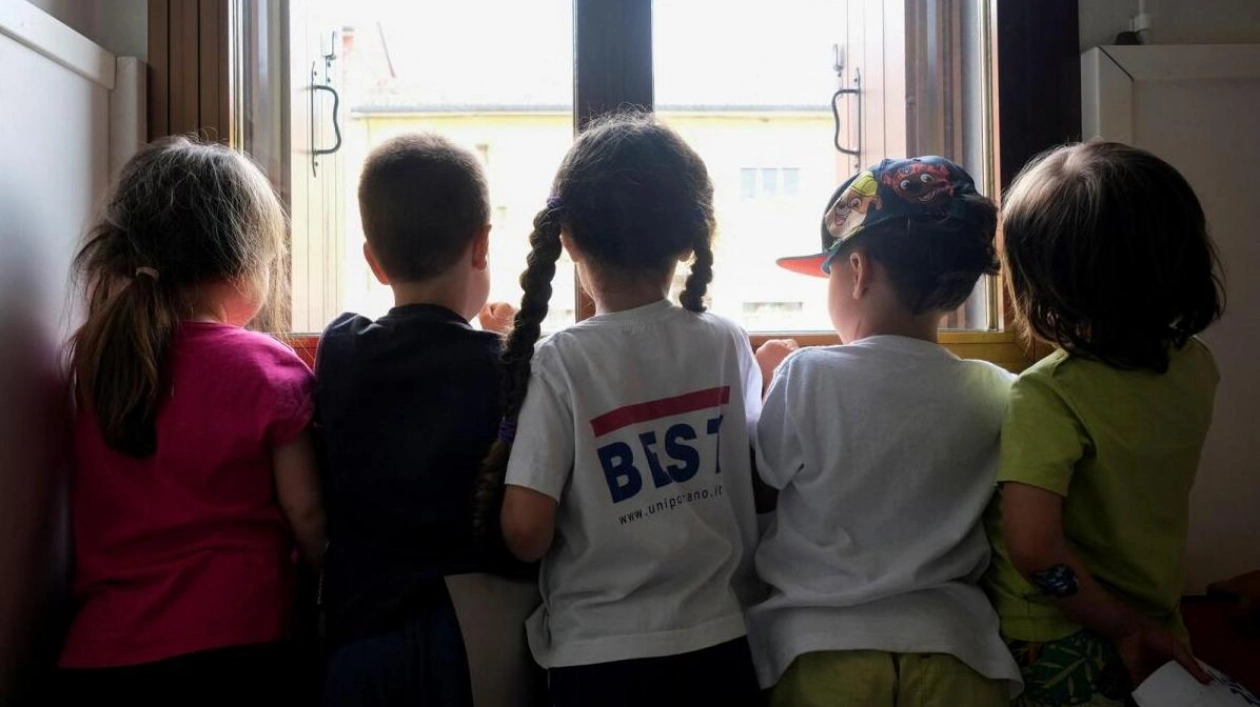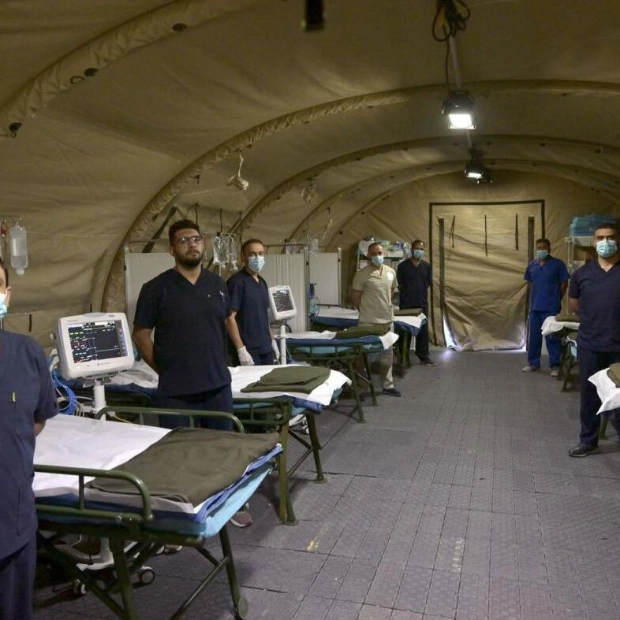Photo: Reuters file
Doctors in the UAE are warning of a noticeable increase in cases of oral herpes (HSV-1) among school-aged children, particularly during the cooler winter months. Medical professionals explain that oral herpes typically affects the skin around the lips and mouth, but it can also appear inside the mouth or around the eyes. During winter, the virus spreads more readily due to increased social gatherings and food-sharing, both at schools and at home.
"This is an infection caused by the herpes simplex virus type 1 (HSV-1). The virus is highly contagious, meaning it can easily spread when you share items like drinks, eating utensils, or towels," said Dr. Ignatiius Edwin D’souza, consultant pediatrician and chair of pediatrics and neonatology at Thumbay University Hospital. He added, "Oral herpes is becoming more common, especially among school-age kids and teenagers. Many children first get the virus when they are young, sometimes even as babies or toddlers, through close contact with an infected person, like a parent or sibling."
In the UAE, during the winter months, the virus tends to spread more easily because of the increased social gatherings both at schools and at home. This season is full of activities like field trips, sports days, and social events at school, where kids are often in close contact with one another. At home, people also step out more often to meet friends and family, which increases the chance of sharing things like drinks, snacks, and even lip balm. This combination of socializing and sharing items is why oral herpes spreads more easily during the cooler months when everyone is more active," he added.
Healthcare professionals emphasized that the signs of oral herpes are usually small blisters or sores that appear, often around the mouth, and these can be painful. Dr. Amjad Mouhammad Haider, consultant pediatrician in International Modern Hospital, Dubai, said, "These lesions may be preceded by itching, tingling, or burning sensations. In primary infections, especially in children, symptoms can include fever, swollen lymph nodes, and sore throat. Recurrent episodes are generally milder and may be triggered by factors such as stress, illness, or sun exposure."
"This condition is more common among children under six years old. It is generally self-limiting in healthy children. Oral herpes can sometimes be mistaken for other conditions, such as canker sores, impetigo, or even a common cold or sore throat, especially during the initial stages of infection. Therefore, a virus culture (PCR), blood test, or biopsy is necessary to confirm the diagnosis. Accurate diagnosis is essential for appropriate management and can be confirmed through clinical evaluation and laboratory tests if necessary," added Haider.
Doctors highlighted that sometimes, the virus can stay in the body and come back later, especially if children are stressed or not feeling well. However, some individuals may never exhibit symptoms of the virus, while others may experience occasional outbreaks of infections. "Oral herpes has been on the rise in recent years, particularly among certain age groups. Traditionally, HSV-1 was mostly contracted during childhood through close contact like contact with an infected person’s skin or saliva, kissing, sharing utensils, or using the same towels," said Dr. Hamza Rahhal, consultant pediatrician in Saudi German Hospital, Dubai.
"Once infected, the virus remains dormant in the body and can reactivate later, often triggered by stress, illness, or other factors. As of now, there is no approved vaccine available for Herpes Simplex Virus 1 (HSV-1). While HSV-1 is a common virus, primarily causing oral herpes, research into a vaccine is ongoing. Scientists have been exploring various vaccine candidates, but a widely available and effective vaccine for HSV-1 has not yet been developed," added Rahhal.
Source link: https://www.khaleejtimes.com






